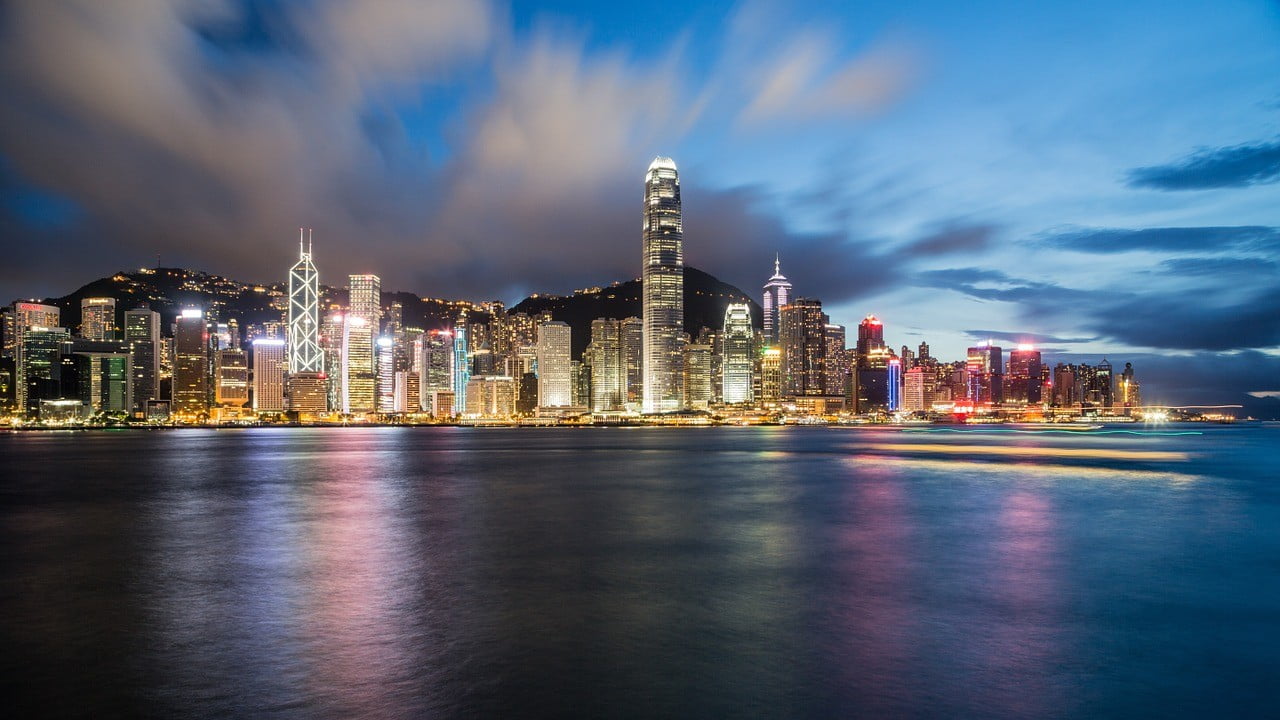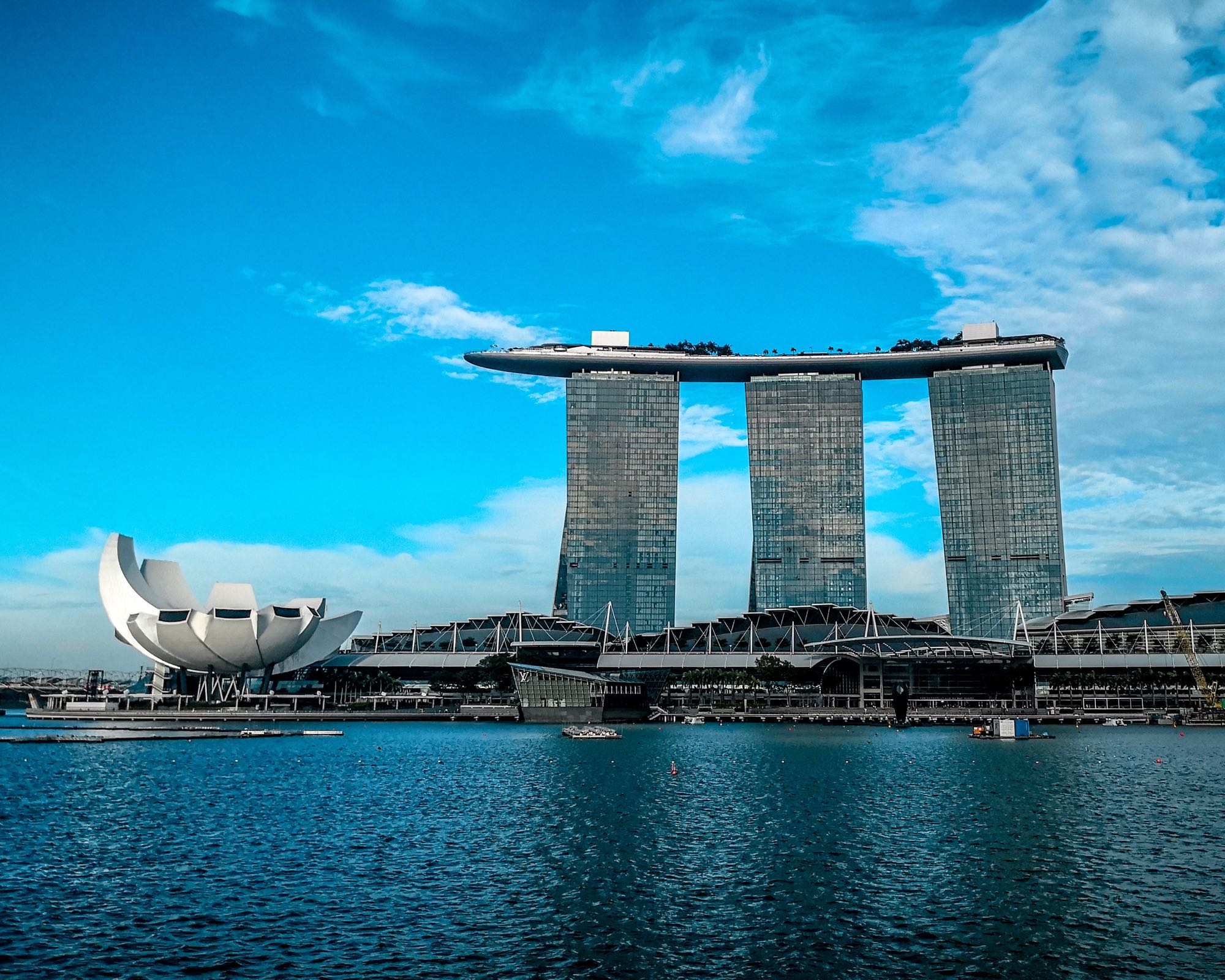Casino Cities In Asia
Business
Asian countries have quickly got used to the billions in tax revenues from dozens of luxury casino resorts. But chasing wealthy Chinese tourists amid an economic downturn is a gamble that could turn to bust.
Pachinko, a pinball-like slot machine, is Japan's favorite form of gambling. The country's 11,000 Pachinko amusement parlors generate more revenues than the casinos of Las Vegas, Macau and Singapore combined.
But Pachinko playing peaked years ago. In 2018, the amusements achieved revenues of 20 trillion yen ($180 billion, €165 billion), according to the Japan Productivity Center, a third less than a decade ago. As a result of the change in fortunes, last year, Japan's government liberalized the country's strict gambling laws to allow, for the first time, the construction of three luxury casino resorts.
Japan plans to make up the lost taxes from Pachinko's decline by luring China's growing wealthy and middle-class tourists to the new gambling establishments. The government said last week that eight cities and prefectures are now involved in a fierce battle to secure the right to host one of the resorts.
Happy Valley Racecourse. #1 of 2 Casinos & Gambling in Hong Kong. “We went to the. Pick your place in the world and a Hard Rock Hotel is there, or nearby. Music-inspired themes, niche artistry and legendary memorabilia are the happy find in each of our destinations across the globe. And every city, resort and casino hotel is tuned-in to the culture, from the America’s to Africa, and Europe to Asia. Over the last 30 days, casino resorts in Asia have been available starting from $32, though prices have typically been closer to $99. Price estimates were calculated on October 17, 2020. See the latest prices.
Read more:Struggle in store for economy as People's Republic of China turns 70
Japan legalizes casinos
'Japan is one of the world's most advanced economies, so the returns are going to be huge,' Glenn McCartney, an associate professor in International Integrated Resort Management at the University of Macau, told DW. 'Several of the international gaming giants including all six players in Macau are bidding to run one of these resorts.'
Resorts spring up across Asia
Several other Asian countries, including Singapore, the Philippines, Cambodia, Vietnam and Malaysia got a major headstart on Japan by opening huge palatial-themed casino resorts over the past decade, if not before. Also known as integrated resorts, the gambling is supposed to be just a small part of the overall shopping, entertainment and leisure experience.
East Asia Cities

Countries are rushing to replicate Macau and Singapore's success in reenergizing their tourism sectors with casinos
Last year, the region's biggest casinos — including Australia — achieved revenues of $49.23 billion, led by Macau, Asia's best-known gambling hub since the 1850s when it was a Portuguese colony. Macau had already staked its future on taxing casino revenues by the time it returned to Chinese rule in 1999. The Monte Carlo of the East now has 38 gambling establishments which bring in around 40% of the territory's gross domestic product (GDP). It is still the only place in China where gambling is allowed.
Read more:Can Taiwan counter China's 'diplomatic aggression'?


Asia is, however, on course for a potential casino building glut. More than 30 projects are planned over the next five or so years, including the three Japanese resorts, at a total cost of $65 billion. US research house Union Gaming has warned that governments and casino operators are being overly ambitious as GDP growth in Asia is unlikely to keep pace with the supply of new casinos in the short term.
Expect lower returns

'As a result, returns will be depressed and numerous projects (or even companies) will be deemed failures,' Union Gaming analysts Grant Govertson and John DeCree said in a recent research note. The pair suggested that operators should aim to spread their investments 'over 15 years rather than 5+ years.' However, they predicted that as Japan's new casinos would serve a 'highly localized market' the country's gambling sector would be insulated from any regional downturn.
China's slowdown is already being felt in Macau's casinos, but Chinese tourists are still huge spenders
The Fitch ratings agency has made a similar assessment, warning that China's economic slowdown is already being felt across Asia's gaming sector. 'The premium segment has already plateaued in markets such as Singapore and Australia but investment is continuing across the region, even as China's economy goes through a structural slowdown,' a recent research note said.
Top Cities In Asia
Fitch predicted that Macau would see only low single-digital growth at best in the next few years, compared with an 18% rise in 2018. Instead, the firm told DW that casinos targeting mass-market tourists would enjoy steadier revenues because of 'the growth of the [Chinese] middle class and infrastructure [across Asia].'
'[Mass-market casinos] are higher margin, less dependent on credit availability and is less cyclical,' said Alex Bumazhny, senior director at Fitch Ratings.
Read more:China's e-car makers go from strength to strength
Despite China's slowdown, the country saw 120 million outbound tourists last year. So there's still a keen supply of Chinese nationals seeking to explore the rest of Asia along with their first chance to gamble legally.
Still new tourist arrivals
'Growth is now coming not just from the likes of Beijing of Shanghai but from second- or third-tier Chinese cities where there is also a lot of wealth being generated,' McCartney told DW. 'So, I think there's still a long way to go in terms of growth.'
Russia, South Korea, and Vietnam are also planning to open new casinos in the next few years. Philippines President Rodrigo Duterte is also set to resume casino licensing following a temporary ban on new permits after a glut of gambling establishments. South Korea already has 20 casinos in Seoul, Incheon and Busan, which are only open to foreigners.
Earlier this year, plans were announced for a new casino resort on Jeju Island, which will include five-star hotels, stores, homes, theaters, a theme park and a golf course; a strategy McCartney thinks other Asian casino operators could replicate to boost their nongaming revenues.
'90% of all Macau's [resort] revenues currently come from gaming, whereas in Vegas, 65% is nongaming,' he said, adding that the presence of casino resorts also helps boost a city's existing MICE (meetings, incentives, conferences, and exhibitions) facilities.

Bumazhny, however, thinks Asian markets are 'highly unlikely' to reach the level of nongaming diversification achieved by Las Vegas due to the motives of the typical Chinese gambler.
'Gaming revenues are very high in these [Asian] markets making it hard for other revenues to make a sizable contribution to the overall pie,' he told DW, adding that table games in Macau and Singapore generate two-three times the amount of revenues per day as in Las Vegas.
Hong Kong-Zhuhai-Macau: China opens world's longest sea bridge
Above and under water
On October 23, 2018, Chinese President Xi Jinping inaugurated the 55-kilometer (34-mile)-long sea bridge that connects Hong Kong and Macau to the sprawling Pearl River delta economic zone via the Chinese mainland city of Zhuhai. The remarkable structure consists of a meandering bridge and a 6.7-kilometer underwater tunnel between two artificial islands.
Hong Kong-Zhuhai-Macau: China opens world's longest sea bridge
Previous record holder
Previously, the 42-kilometer-long Jiaozhou Bay Bridge, or the Qingdao Bay Bridge, was the longest sea bridge. It is located in Shandong Peninsula and connects the cities of Qingdao and Huangdao.
Hong Kong-Zhuhai-Macau: China opens world's longest sea bridge
Parking islands
The Hong Kong-Macau sea bridge cost the Chinese government 120 billion yuan, equivalent to about €15 billion ($17.2 billion), and its construction took almost a decade. From this artificially created island in Hong Kong, the structure plunges under water. In addition, car and truck drivers can stop here. At least 60,000 cars and 250,000 people are estimated to use this connection daily.
Hong Kong-Zhuhai-Macau: China opens world's longest sea bridge
Expected economic boom
The Chinese government hopes that connecting Hong Kong and Macau to the Pearl River delta area would boost economic activity in the region. Until now residents of Zhuhai, Macau and Hong Kong have used ferries to commute between the three cities.
Hong Kong-Zhuhai-Macau: China opens world's longest sea bridge
Time is money
At a speed of 100 kilometers per hour, the journey time between Hong Kong and Macau should be reduced from three hours by ferry to less than 30 minutes by car. But this is not a bridge anyone can just drive on — for now only the rich or politically well connected residents of Hong Kong and Macau will be able to take their private cars across the bridge.
Hong Kong-Zhuhai-Macau: China opens world's longest sea bridge
Several delays
The bridge should have been officially inaugurated by the end of 2016, but it took longer than expected to open it. The bridge will be open to regular traffic from October 24, 2018. The structure will last up to at least 120 years and can also withstand typhoon winds of up to 340 kilometers per hour.
Hong Kong-Zhuhai-Macau: China opens world's longest sea bridge
A steel and concrete giant
About 400,000 tons of steel was used in the construction of this gigantic bridge. That is 4.5 times more steel than what was used in building the Golden Gate Bridge in San Francisco. Chinese authorities say the bridge can not only withstand a magnitude-8 earthquake but also survive collisions with cargo ships.
Hong Kong-Zhuhai-Macau: China opens world's longest sea bridge
Two driving systems
Border controls have been built on crossings in mainland China, Hong Kong and Macau. One of the problems that drivers face along the bridge deals with right- and left-hand driving systems. The drivers must also have two valid licenses to cross the bridge.
Hong Kong-Zhuhai-Macau: China opens world's longest sea bridge
A controversial 'white elephant'
The construction of the bridge was delayed due to rising costs, fatal accidents of laborers and corruption allegations. Hong Kong residents fear Beijing will attempt to undermine their partial autonomy through this bridge. Environmentalists warn it would have a devastating impact on endangered pink dolphin species in the Pearl River estuary. Critics also say that the bridge is a waste of money.



